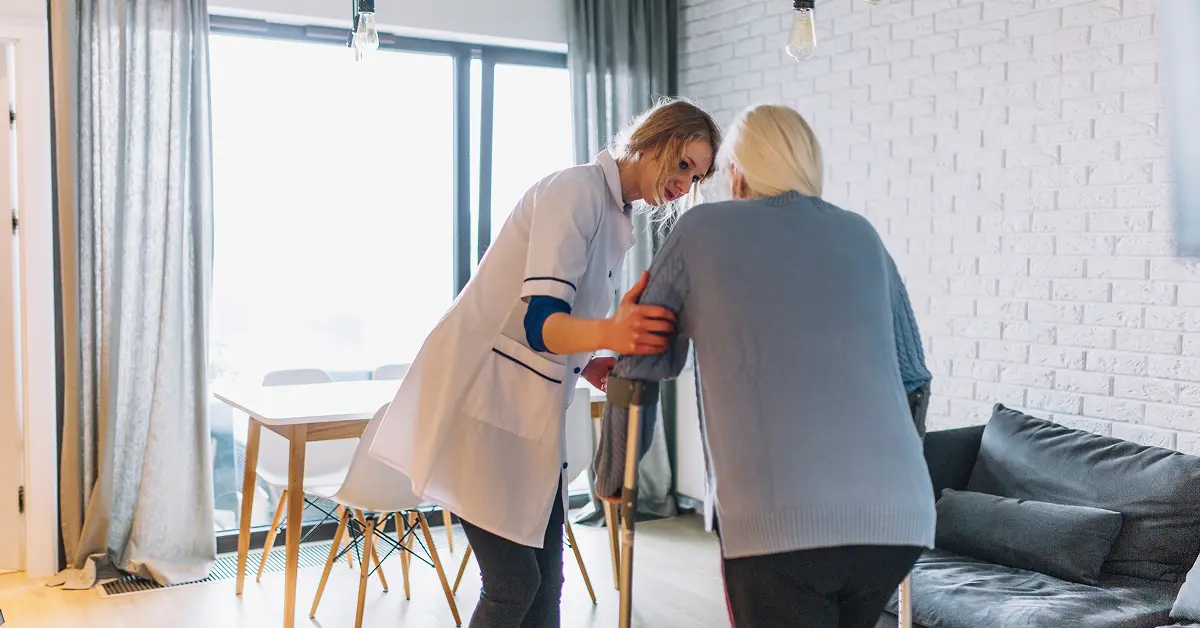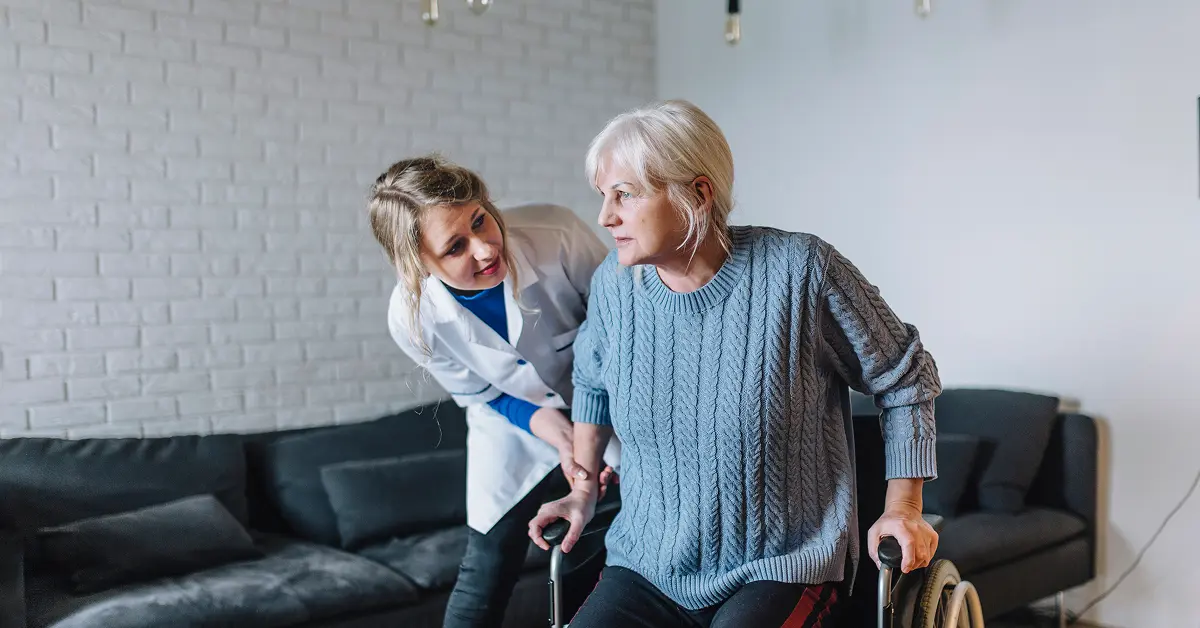Wound care is a critical component of recovery, whether from surgery, accidents, diabetic ulcers, or chronic conditions. In India, where home-based healthcare is gaining popularity, nurse-assisted wound care offers a practical and effective solution. A trained nurse not only manages the wound but also monitors the healing process, identifies early signs of complications, and ensures hygiene standards are maintained — all of which significantly speed up recovery.
In this blog, we’ll explore the key benefits of choosing nurse-assisted wound care and why it is becoming a preferred option for many Indian families.
Professional Expertise for Every Stage of Healing
A registered nurse is trained to handle all types of wounds — from post-surgical incisions and traumatic injuries to pressure sores and chronic wounds. Their expertise ensures that:
- The wound is cleaned thoroughly
- Dressings are applied using sterile techniques
- Signs of infection or delayed healing are spotted early
Unlike basic home remedies or untrained help, nurses follow clinical protocols to prevent complications and ensure proper wound closure. This level of care significantly accelerates healing and reduces unnecessary hospital visits.
Infection Prevention and Control
One of the most common causes of delayed wound healing is infection. In India’s climate and urban conditions, exposure to dust, heat, and pollution can easily worsen an untreated or poorly managed wound.
Nurses follow strict hygiene and sterilisation protocols, such as:
- Using medical-grade gloves and instruments
- Disposing of biohazardous waste correctly
- Applying prescribed antiseptic solutions
- Educating families on hand hygiene and care routines
By maintaining a clean wound environment, nurses reduce the risk of infection — a crucial factor in fast recovery.
Pain Management and Patient Comfort
Wound dressing can be a painful experience, especially for children, the elderly, and post-surgical patients. A trained nurse ensures minimal discomfort by:
- Using appropriate pain-relief measures
- Applying gentle techniques during dressing changes
- Monitoring for signs of pain, swelling, or allergic reaction
In addition, nurses provide emotional support, especially important for patients with long-term or chronic wounds. Their presence builds trust and reduces anxiety, which plays a vital role in overall recovery.
Timely Detection of Complications
Certain wounds — especially diabetic ulcers, bedsores, or surgical wounds — can become serious if neglected. A nurse is trained to detect early warning signs such as:
- Redness or swelling around the wound
- Excessive pus or discharge
- Unpleasant odour
- Slow or non-existent healing
Early detection ensures timely medical intervention, possibly preventing hospitalization, sepsis, or tissue damage.
Customised Care Plans
Every patient heals differently based on their age, health condition, type of wound, and lifestyle. Nurses create custom wound care plans, taking into account:
- Nutrition advice for faster tissue regeneration
- Scheduled dressing changes
- Medication reminders
- Mobility guidance to avoid stress on the wound
This personalised approach ensures that the patient receives care tailored to their recovery journey, boosting healing efficiency.
Education for Family Caregivers
In many Indian households, family members actively participate in caregiving. A nurse doesn’t just provide clinical care — they also educate family caregivers about:
- Proper dressing techniques
- Warning signs to look for
- Safe disposal of medical waste
- Do’s and don’ts for faster healing
This guidance empowers families to maintain wound care in between nurse visits, especially in remote or semi-urban areas where daily nursing might not be feasible.
Convenient and Cost-Effective Care at Home
Hospital stays for wound management can be expensive and emotionally draining, especially in metro cities like Delhi, Mumbai, or Bengaluru. Nurse-assisted wound care at home:
- Reduces hospital re-admissions
- Saves transportation and lodging costs
- Allows the patient to recover in familiar surroundings
For long-term care or chronic wounds, home nursing services in India offer economical packages compared to repeated hospital visits, making it a cost-effective option for many families.
Support for Chronic Conditions like Diabetes or Bedridden Patients
Chronic health issues like diabetes, vascular disease, and immobility delay the body’s natural healing process. In such cases, wound care becomes a long-term process, requiring regular monitoring.
Nurses assist in:
- Managing complex wounds like diabetic foot ulcers
- Preventing pressure sores in bedridden elders
- Coordinating with doctors for advanced wound therapies
This continuous care is vital in avoiding amputations, infections, or long-term disability — especially important for India's ageing population and those with lifestyle diseases.
Enhancing Healing Through Allied Support
Wound healing isn’t just about dressings. A trained nurse also works alongside physiotherapists, dieticians, and doctors to ensure comprehensive recovery, including:
- Encouraging mobility when appropriate
- Ensuring the patient is eating nutrient-rich foods for tissue repair
- Adjusting care plans based on medical updates
Such multi-disciplinary collaboration improves the patient’s overall health, not just the wound site.
Peace of Mind for Families
For families juggling work, children, and elder care, having a qualified nurse manage wound care brings immense peace of mind. You can be assured that:
- The patient is in safe, experienced hands
- Emergencies will be handled professionally
- Recovery is being monitored and guided
In the Indian context, where joint family responsibilities are common, this kind of support relieves caregivers from the stress of clinical tasks they aren’t trained for.
Conclusion: Healing with Dignity and Professionalism
Nurse-assisted wound care is not just a convenience — it's a crucial healthcare service that ensures proper healing, prevents complications, and improves the quality of life for Patient Care recovering at home. With India's increasing adoption of home healthcare and nursing services, families now have access to world-class care without the hassle and cost of hospitalisation.
If your loved one is recovering from surgery, injury, or managing a chronic condition that affects healing, consider hiring a professional home nurse for wound care. It’s an investment in faster recovery, fewer complications, and better health outcomes.
Looking for reliable nurse-assisted wound care in your city?
Explore trusted home nursing services in India and ensure expert care for your loved ones — right at your doorstep.
Contents
- Professional Expertise for Every Stage of Healing
- Infection Prevention and Control
- Pain Management and Patient Comfort
- Timely Detection of Complications
- Customised Care Plans
- Education for Family Caregivers
- Convenient and Cost-Effective Care at Home
- Support for Chronic Conditions like Diabetes or Bedridden Patients
- Enhancing Healing Through Allied Support
- Peace of Mind for Families
- Conclusion: Healing with Dignity and Professionalism
Our 24*7 services
Latest Posts
- What Is Respite Care and Why Is It Important
- Affordable home care for senior citizens in India
- Caring for Seniors with Dementia or Alzheimer's at Home
- Senior Caregiving A Guide for Every Family
- How to Write a Caregiver Resume That Gets You Hired
- How Care After Hospital Discharge Speeds Up Recovery at Home
- How to Get Home Health Care for Seniors Through Medicare
- What Does a Senior Citizen Caregiver Really Do at Home
- How to Care for Elderly Parents with Alzheimer’s or Dementia
- How to Get 24-Hour Care for Seniors at Home



